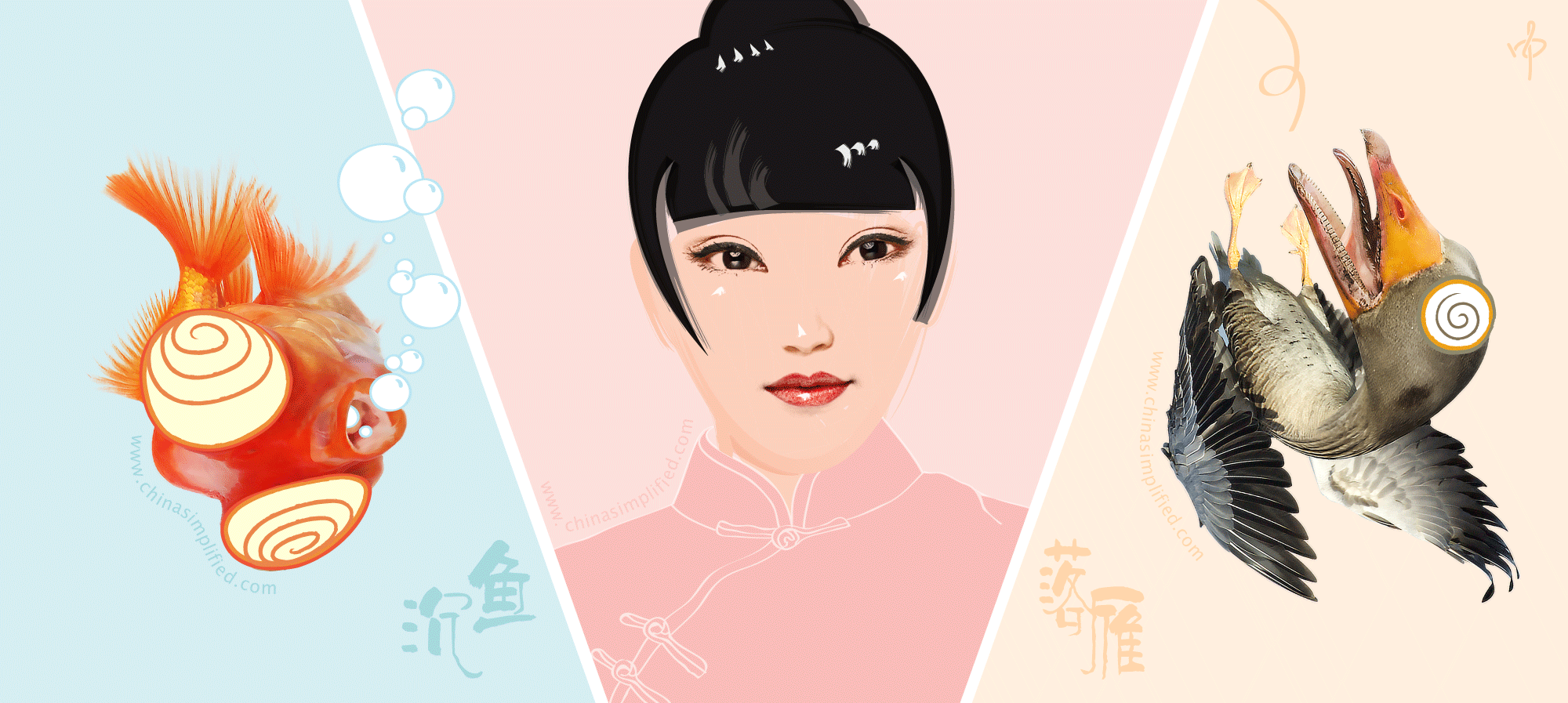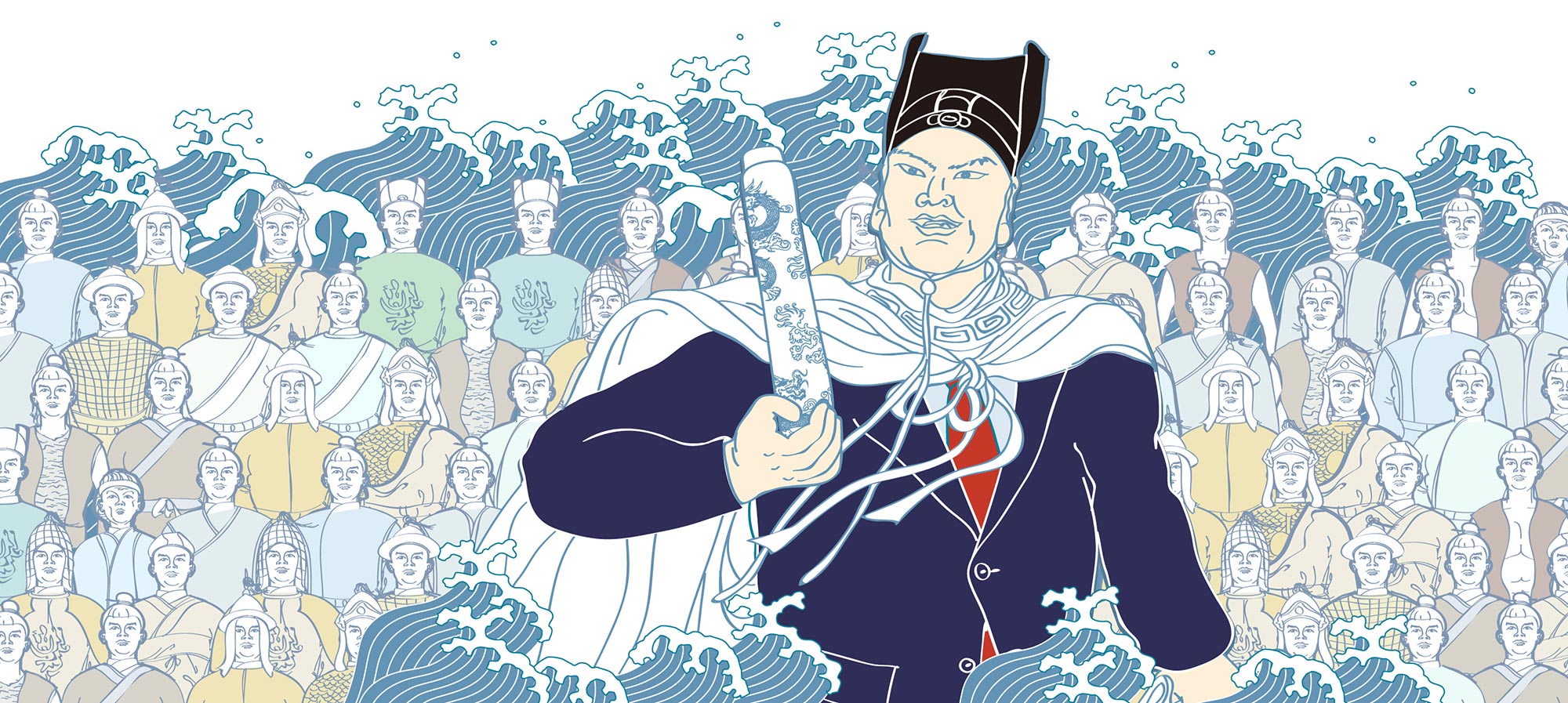Have one of these timeless expressions ready for when you need it!
Beauty is subjective; we all get that. And while there are plenty of online posts about the latest pretty girl expressions, such as 白富美 bái fù měi miss perfect (lit. fair rich beautiful), 萌妹 méng mèi a cutie pie (lit. adorable younger sister) and 女神 nǚshén a goddess who’s unattainable.
We wouldn’t want your vocabulary limited to just those “here today, gone tomorrow” fad expressions!
Let’s review 5 timeless expressions that show others you appreciate the beauty of women and the language:
秀外慧中
xiùwài-huìzhōng
Meaning
Beauty and intelligence (lit. elegant exterior, wisdom interior); first used in Tang Dynasty.
Context
You want to show appreciation for her inner substance.
Example:
认识越久,越觉得你秀外慧中。
Rènshi yuèjiǔ, yuè juédé nǐ xiùwài-huìzhōng.
The longer I know you, the more I realize you are a perfect blend of beauty and intelligence.
增之一分则太长,减之一分则太短
zēng zhī yī fēn zé tài cháng, jiǎn zhī yī fēn zé tài duǎn
Meaning
Fit and perfect (lit. add an inch too long, cut an inch too short); first used in Warring States to discuss height.
Context
You want to compliment someone’s physical shape.
Example:
你的身材太好了。简直是增一分则太肥,减一分则太瘦。
Nǐ de shēncái tài hǎo le. Jiǎnzhí shì zēng yī fēn zé tài féi, jiǎn yī fēn zé tài shòu.
Your figure looks great. A little more weight would be too much, a little less weight would be too thin.
沉鱼落雁
chényú-luòyàn
Meaning
So beautiful that she crashes fish and birds (lit. dive fish fall goose); first used in Warring States.
Context
You are floored by her heavenly charms.
Example:
你美得沉鱼落雁。
Nǐ měi dé chényú-luòyàn.
Your beauty makes fish dive and geese crash.
闭月羞花
bìyuè-xiūhuā
Meaning
So beautiful the moon and flowers feel embarrassed (lit. hide moon, shame flower); first used in Yuan Dynasty.
Context
You’re again floored by someone’s heavenly charms, and you’ve already mastered #3 above.
Example:
你的美是闭月羞花之美。
Nǐ dì měi shì bìyuè-xiūhuā zhīměi.
Your beauty even outshines nature.
情人眼里出西施
qíngrén yǎn lǐ chū xīshī
Meaning
Beauty is in the eye of the beholder (lit. lover eye’s produce Xishi, one of the legendary Four China Beauties); first used in Qing Dynasty.
Context
When others question your beauty standards, here’s a clever way to silence them and demonstrate a little historic awareness.
Example:
情人眼里出西施嘛,你穿什么都好看。
Qíngrén yǎn lǐ chū xīshī ma, nǐ chuān shénme dōu hǎokàn.
In my eyes, everything looks beautiful on you.
These expressions have been around for centuries and they’re not going to disappear anytime soon. But don’t feel like you have to learn them all! With Chinese idioms (成语 chéngyǔ), a little goes a long way.
To find out how to dodge compliments, especially those overpraising your Mandarin skills, check out Chapter 7 in our new book China Simplified: Language Empowerment and discover how to strike just the right tone of modesty.
Do you know of any other classic compliments?
Let us know in the comments below!










Xiexie
不用谢 búyòng xiè!
what does bu/yong xie! Li wei Craig
I want to learn Mandarin.
That’s great! You can check out our book China Simplified: Language Gymnastics – https://www.chinasimplified.com/china-simplified-language-gymnastics/ to get you started and gain valuable insights into the language.